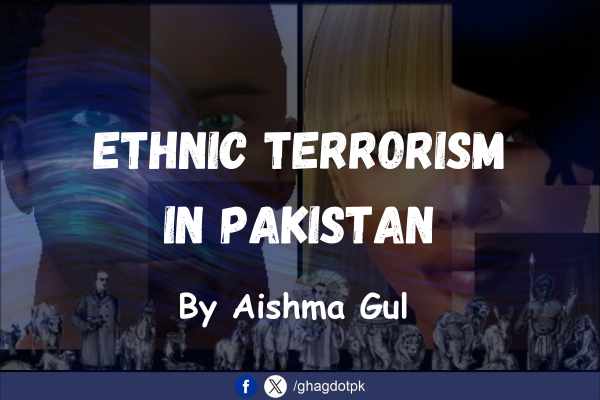By Aishma Gul
According to Stephen P. Cohen, a renowned expert on South Asian politics and author of “The Idea of Pakistan” (2004): “Ethnic tensions in Pakistan are not just a matter of cultural differences; they are deeply intertwined with politics, economics, and regional identities. The challenge for Pakistan is to manage these differences in a way that fosters national unity rather than division.”
This insightful observation underscores the complexities Pakistan faces in navigating its rich ethnic and sectarian diversity, which has often been exploited by external forces seeking to destabilize the country. Hostile elements have attempted to amplify ethnic tensions, particularly in regions like Balochistan, where separatist movements such as the Baloch Liberation Army (BLA) have targeted non-Baloch communities to create discord. Sectarian violence, especially against Shia Muslims, has also been fueled by external funding to groups like Lashkar-e-Jhangvi, which aim to incite unrest. The conflict in Afghanistan has further complicated Pakistan’s internal dynamics; militants often cross the border to carry out attacks that exploit ethnic and sectarian divisions.
Recent Attack in Balochistan
Despite these challenges, Pakistan has responded with robust counter-terrorism strategies. On August 26, 2024, a tragic incident unfolded in the Musakhel district of Balochistan, Pakistan, where gunmen murdered 23 individuals after forcibly offloading them from buses and trucks. The victims, identified as residents of Punjab province, were targeted following identity checks conducted by the attackers. This heinous act, which took place on the inter-provincial highway in the Rarasham district, was followed by the torching of ten vehicles. The attack has been widely condemned by various government officials, including Prime Minister Shehbaz Sharif and President Asif Ali Zardari, as an attempt to sow discord among different ethnic groups within the nation.
Ethnic Violence in Pakistan: A Grim History
The Musakhel incident is the latest in a series of ethnic attacks that have periodically targeted different communities across Pakistan. These attacks often stem from attempts to exploit ethnic differences, which are further fueled by external elements seeking to destabilize the country. Historically, Balochistan has been a hotbed of ethnic violence. In January 2013, two bombings in Quetta targeting the Hazara Shia community claimed over 100 lives. These attacks were claimed by the sectarian militant group Lashkar-e-Jhangvi, which has a history of targeting the Hazara community in an attempt to ignite ethnic and sectarian strife.
Similarly, in 2011, the Baloch Liberation Army (BLA) attacked a passenger bus in Balochistan, killing 26 people, including 11 Punjabi laborers. The BLA, an ethnic Baloch separatist group, has been involved in numerous attacks against non-Baloch communities, particularly targeting settlers from Punjab, to drive a wedge between different ethnic groups in Balochistan.
Security Forces’ Response and Successes
Pakistan’s security forces have consistently worked to thwart these attempts to incite ethnic tensions. The military has launched numerous operations in Balochistan and other areas to dismantle militant networks that seek to exploit ethnic divisions. For example, in 2017, Operation Radd-ul-Fasaad was launched to eliminate the remnants of terrorist groups across Pakistan, with a significant focus on areas prone to ethnic violence. The operation led to the capture or killing of several militants from groups like the BLA and Lashkar-e-Jhangvi, significantly reducing their capacity to carry out large-scale ethnic attacks.
In Karachi, targeted operations against militant groups have also been effective. In 2015, an attack on a bus carrying members of the Ismaili Shia community resulted in the death of 45 people. The swift response by security forces led to the arrest of several suspects linked to the militant group responsible, thereby preventing further violence.
A Continued Challenge
Despite these achievements, the challenge of ethnic violence persists. External forces continue to exploit Pakistan’s ethnic diversity, attempting to create rifts and disrupt social harmony. According to the South Asia Terrorism Portal (SATP), terrorist attacks in Pakistan decreased from 1,816 in 2014 to 319 in 2023. This marked reduction highlights the effectiveness of counter-terrorism strategies implemented by the military and law enforcement agencies. The National Action Plan launched in 2014, has been pivotal in addressing the root causes of terrorism and fostering unity among Pakistan’s diverse ethnic communities.
As the government and security forces intensify their efforts to combat terrorism, all citizens must remain united and vigilant against any attempts to fan ethnic discord. The strength of Pakistan lies in its diversity, and any effort to undermine this unity will be met with resolute resistance from both the state and its people.






